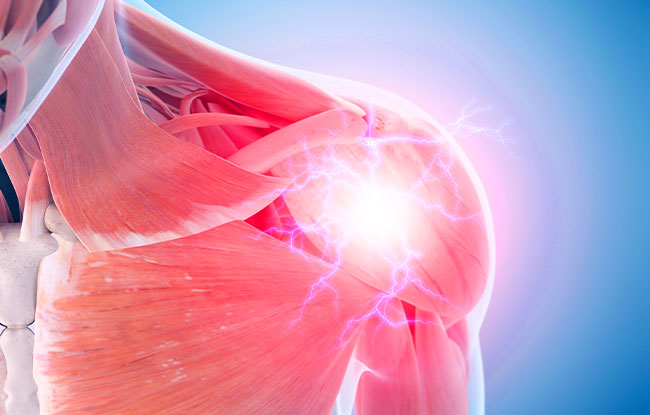Adhesive Capsulitis Capitola
Adhesive Capsulitis
Adhesive capsulitis, also known as frozen shoulder, refers to the membrane surrounding the shoulder joint capsule that becomes thick, stiff, and inflamed, causing limited mobility to your shoulder. The shoulder joint capsule is a strong tissue that holds the shoulder bones to each other. When the capsules become inflamed, scar tissues form (adhesions), leaving less space for your shoulder joint to rotate properly. Frozen shoulder syndrome often starts slowly with mild pain, but after a few months, the pain can worsen. Shoulder pain is often worse at night, making it hard for you to sleep, and you may have trouble lifting your arm or moving it around.
Symptoms of frozen shoulder are divided into three stages:
- The “freezing” stage: In this stage, any movement of your shoulder causes pain, and restricted motion to your shoulder has begun. Usually lasts from 6 to 9 weeks.
- The “frozen” stage: In this stage, the pain may have reduced, but the shoulder remains stiff, making it difficult to do daily activities. The frozen phase can last from 4 to 12 months.
- The “thawing” stage: During this stage, your shoulder’s range of motion begins to improve slowly. The stage can last from 6 months to 2 years.

What Causes Adhesive Capsulitis?
The cause is still unknown, but it often occurs to older people and those who have diabetes. Certain factors may increase your risk for developing a frozen shoulder:
- Between the age of 40 and 60
- More common in women than men
- Immobility or reduced mobility
- Diabetes
Other health diseases and conditions such as Parkinson’s disease, cardiac disease, hypothyroidism, and hyperthyroidism.
Your risk can increase if you’re in the process of recovering from a medical condition such as a stroke or surgery that keeps you from moving your arm.
We Help Adhesive Capsulitis
A frozen shoulder tends to get better over time on its own without any treatment. However, that can take up to 3 years.
We know how limited mobility can cause a frustrating experience and affect our quality of life! Once you schedule a consultation, our doctor will discuss the symptoms you have developed and your medical history. After it is concluded, a physical exam will occur where our doctor pay close attention to your range of motion and any pain that appears with your movement. An X-ray or other advanced imaging test may be necessary to ensure that there isn’t any other cause of your symptoms, such as arthritis.
When a diagnosis of a frozen shoulder is confirmed, our doctor can create a treatment plan that is not only right for you but help decrease your pain and improve your shoulder’s range of motion. Our doctor at Harbor Health Center use a combination of nonsurgical treatment options to assist with your recovery, and in many cases, speed up the progress. If you suspect developing symptoms of frozen shoulder, schedule an appointment, and let our doctor help you increase the likelihood of leading a healthier and more active life!
